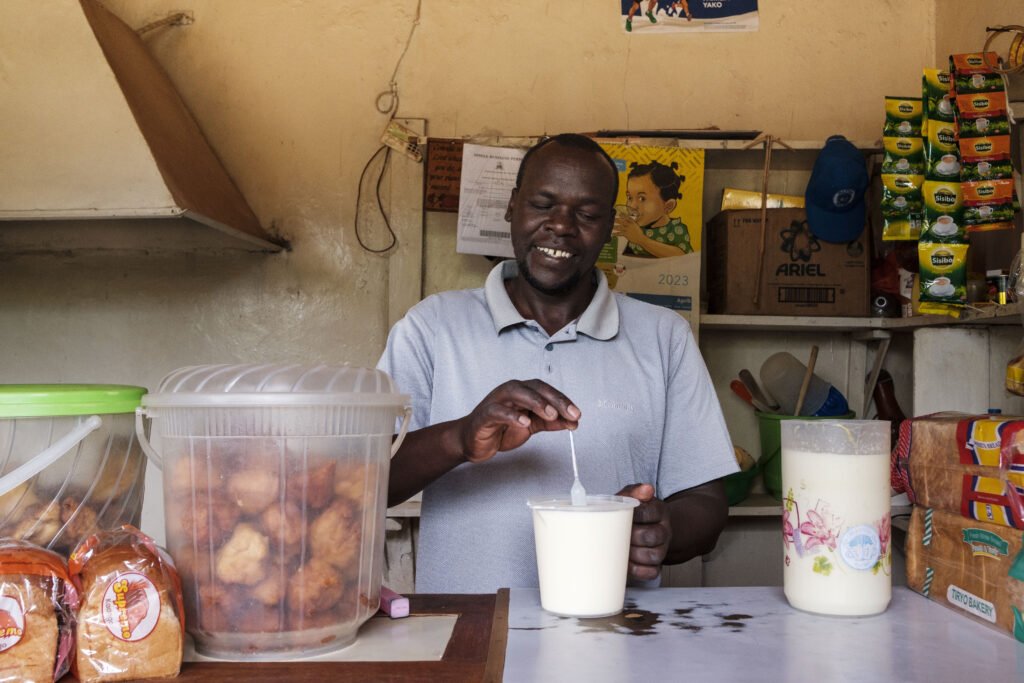By Murimi Gitari
Kenya’s informal dairy sector plays a significant role in the dairy value chain, handling between 55 and 70 percent of the domestic marketed milk. The sector is largely driven by milk vendors or retailers who sell an average of 50 to 100 litres a day, often at about half the price of processed milk.
Despite their important role in milk in food, health and nutrition in their communities, they face many challenges, including poor milk handling practices, and difficulties checking and maintaining product quality and safety.
To address these problems, the Kenya Dairy Board (KDB) and the International Livestock Research Institute (ILRI) recently launched a four-year project aimed at enhancing milk safety, regulatory compliance, and market access for small-scale dairy businesses in Nakuru, Nyandarua, and Uasin Gishu counties The initiative, dubbed More Milk: More Milk for Lives and Livelihoods in Kenya, is funded by the Bill & Melinda Gates Foundation and the UK Foreign, Commonwealth and Development Office.
The scheme will also support the gradual transition of informal dairy businesses into certified enterprises that offer safe and quality dairy products while empowering vendors to thrive, and win consumer trust. “Building on the success of the original MoreMilk project, and continuing to be grounded on sound research, this initiative aims to create a sustainable model that not only supports small businesses but also protects the health and well-being of Kenyan families,” said Silvia Alonso, Principal Scientist/ Project Lead, ILRI.
“Through capacity building, incentives for change, and fostering an enabling environment, we are committed to supporting small and medium dairy enterprises. We believe that providing the necessary training, technology, and access to resources can uplift the entire dairy sector, ensuring healthier and safer milk for all Kenyans,” said Margaret Kibogy, the KDB managing director.
The initiative aligns with Kenya’s Bottom-Up Economic Transformation Agenda, which identifies dairy as a priority value chain for development and seeks to increase milk sales through regulated markets from less than 20 percent to 50 percent.
“Our long-term vision is to have a formalised dairy sector in Kenya that provides safe milk and contributes to nutrition security, health, and economic growth. This initiative is an essential step towards achieving this vision,” said Dr Joshua Chepchieng, Secretary Administration at the State Department of Livestock Development.
The project will also empower consumers by increasing demand for safer, highquality milk and strengthen gender equity by fostering collaboration between men and women in the informal sector. According to the Kenya Dairy Master Plan (DMP), the total domestic demand for milk is expected to increase 2.83 times, from 4.5 billion litres to 12.67 billion litres. Kenyan consumers show a strong preference for fresh liquid milk. ILRI Director-General Appolinaire Djikeng said the partnership with KDB is pivotal in transforming Kenya’s informal dairy sector.
“By combining research and regulatory expertise, we are improving milk safety, enhancing livelihoods, and driving national food security and public health progress. Together, we are building a professionalised, sustainable industry that benefits millions,” he said.

